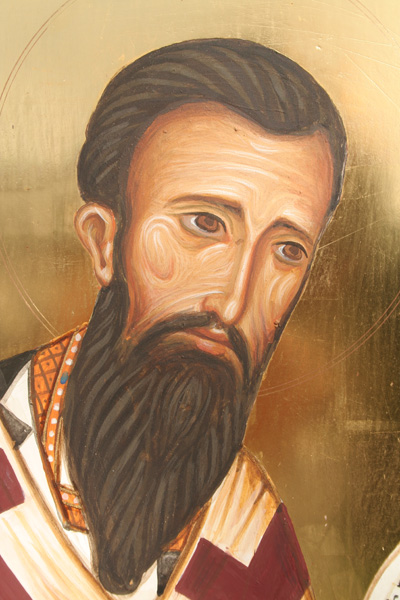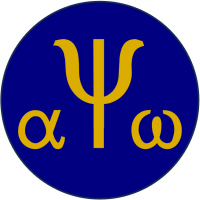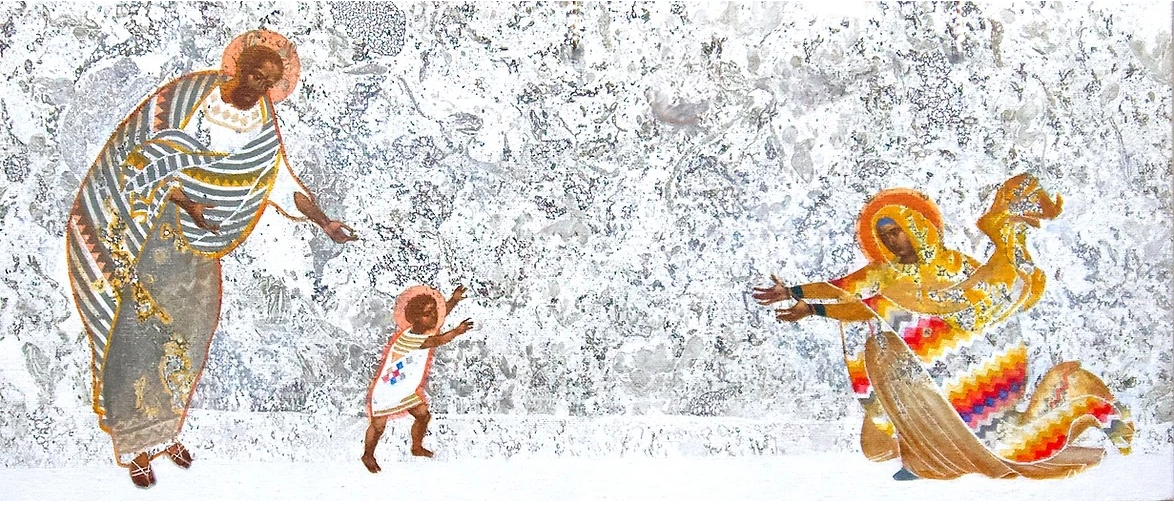
Basil of Caesarea
One of the three Cappadocian Fathers (alongside his younger brother Gregory of Nyssa and their friend Gregory of Nazianzus), St Basil “the Great” (c.330 – 379 AD) received a classical education, after which his sister Macrina persuaded him to abandon a promising career in public speaking in favour of the ascetic life.
After touring the monastic centres of the day (in Syria, Palestine and Egypt) he established his own community in Cappadocia and was influential in the organisation of the growing monastic movement of his day.
Basil’s abilities were soon noticed by Eusebius the bishop of Caesarea, who appointed him as his assistant. From that point onwards, Basil began to rise in ecclesiastical circles, with his ordination as priest, and eventually to his succeeding Eusebius as bishop.
He became an astute and able politician in both ecclesiastical and secular spheres, and used his influence to vigorously champion the poor, as well as upholding the Nicene faith against Arian opposition.
Quotes from Basil of Caesarea
I’ve compiled some of my favourite quotes from Basil of Casarea on some of his common themes. Click the links to read more…
Basil of Caesarea’s Texts in Translation
Quotes and books about a person are all well and good but there’s nothing better than reading an entire text by someone to fully understand their approach.
St Basil the Great, S.Hildebrand (translator), On the Holy Spirit (New York: St Vladimir’s Seminary Press, 2011)
This is the text for which St Basil is best known, and is therefore essential reading. Some of his arguments may sound a little obscure and the text is sometimes quite dry and technical, especially at the beginning, but don’t let that put you off!
Basil himself gives justification for his approach in the following words…
“Those who are idle in the pursuit of righteousness count theological terminology as secondary, together with attempts to search out the hidden meaning in this phrase or that syllable, but those conscious of the goal of our calling realise that we are to become like God, as far as this is possible for human nature. But we cannot become like God unless we have knowledge of Him, and without lessons there will be no knowledge. Instruction begins with the proper use of speech, and syllables and words are the elements of speech. Therefore to scrutinise syllables is not a superfluous task.”
On the Holy Spirit, 1.2
So there! Basil’s apology for his approach is necessary as he does get quite caught up in the scrutiny of prepositions (“in”, “through”, “with”) in the text. At the heart of Basil’s argument is that liturgy (and especially the form of the doxology which Basil uses – “Glory to the Father with the Son, together with the Holy Spirit”) is one of the ways the Church retains and transmits doctrine, even if the full implications have not yet been worked out. Tradition, says Basil, is both written & unwritten – liturgy is part of tradition – and it communicates an understanding of the nature of God (as Trinity).
Sister M. Monica Wagner (translator), St. Basil Ascetical Works (Fathers of the Church Vol. 9) (Washington DC: Catholic University of America Press, 1962)
This one volume contains Basil’s writing on the ascetic life – the majority addressed to monks but several potentially written for clergy, laity or monks living in the world. Also includes a number of homilies on subjects such as envy, humility, mercy and justice. Of perhaps greatest interest is the inclusion of a translation of Basil’s “Long Rules”, which is a set of 55 questions and answers on monastic issues of his day.
Note: The edition linked to on Amazon above is to the more recent paperback (hence the different date) but the text will be the same. Might be worth checking on Abebooks.co.uk.
Sister Agnes Clare Way (translator), St. Basil Exegetic Homilies (Fathers of the Church Vol. 46) (Washington DC: Catholic University of America Press, 1963)
This volume includes Basil’s nine homilies on the “Hexaemeron” – the six days (of creation) – seen as a tour de force of the natural science of the day. Although also available in the Nicene and Post Nicene Fathers volume (see below) this translation is much easier to read as the language is not so archaic. Also included are a number of Basil’s homilies on various Psalms (1, 7, 14, 28, 29, 32, 33, 44, 45, 48, 59, 61, 114).
Note: The edition linked to on Amazon above is a more recent reprint.
P. Schaff and H. Wace (editors), The Nicene and Post-Nicene Fathers of the Christian Church: Second Series, Volume 8: St Basil, Letters and Select Works
This large single volume contains a (Victorian) translation of “On the Holy Spirit” and “The Hexaemeron” as well as Basil’s surviving letters (over 300 of them!). The other translations of these two texts (see the previous books on this page) are much easier to read.
If you want a secondhand physical copy of this book, check out Abebooks.co.uk for a variety of options from £15 upwards. Alternatively, view, download and print the texts for FREE! See the CCEL website.
Note: Basil’s letters are available separately in various collections, with a more modern translation. They exist as a four volume set in the “Loeb Classical Library” and also as a two volume set in the “Fathers of the Church” series – ISBN 081320013X and 0813200288. All of these are out of print, but you could try Abebooks for a second-hand set.
Books about Basil of Caesarea
If you’re wanting to read more and the life and times of Basil of Caesarea, here are some recommended starting points.
P. Rousseau, Basil of Caesarea (Berkley: University of California Press, 1998)
This book is a good biography of “Basil the man”, trying to construct a picture of the person behind the ascetic & theological works he left behind. The Amazon summary of this book says…
“Basil of Caesarea is thought of most often as an opponent of heresy and a pioneer of monastic life in the eastern church. In this biographical study, however, controversy is no longer seen as the central preoccupation of his life, nor are his ascetic initiatives viewed as separable from his pastoral concern for all Christians. Basil’s letters, sermons, and theological treatises, together with the testimonies of his relatives and friends, reveal a man beset by doubt. He demanded loyalty, but gave it also, and made it a central feature of his church. In Rousseau’s portrait, Basil’s understanding of human nature emerges as his major legacy.”
Also worth searching on Abebooks.co.uk.
W. K. Lowther Clarke, St Basil the Great: A Study in Monasticism (Cambridge: Cambridge University Press, 1913)
An excellent, and easy to read book, which positions Basil’s contribution to Christian asceticism within the context of monasticism as a whole. There are useful chapters on “Asceticism in the Early Church” and “Egyptian Monasticism” as well as an overview of Basil’s ascetic ideals and his writings (including his “rules”). The book ends with a summary of Basil’s later influence on both the Eastern & Western Church. In the ever changing world of scholarship, there are bound to be those who would argue with some of this text, but it’s a great place to start.
Note: The edition linked to on Amazon above is a more recent reprint.

